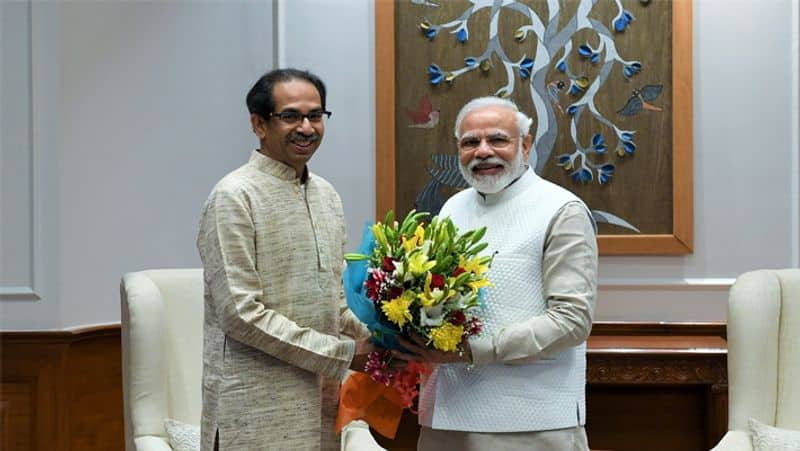Maharashtra CM Uddhav Thackeray met PM Modi and held discussions with him on CAA, NPR and NRC. In all likelihood, he will give his nod for their (CAA, NPR) implementation.
Bengaluru: While Congress and the NCP have been trying to persuade Maharashtra CM Uddhav Thackeray against the implementation of CAA and NPR, the Maharashtra CM might actually take a decision contrary to it.
The CM met PM Narendra Modi and held discussions with him in this regard.
He said, “I had a good discussion with the Prime Minister over issues concerning Maharashtra. I also discussed the CAA, NPR and NRC with him. No one needs to fear CAA. The NPR is not going to throw anyone out of the country.”
This statement of his must come as a shock to the Congress and the NCP as they have been vociferously voicing their opposition against the CAA, NPR and NRC.
Earlier, the Congress had been using the concept of ‘coalition dharma’ to prevail upon Maharashtra CM Uddhav Thackeray to veer away from the CAA.
Senior Congress leader Renuka Chowdhury had said, “The Congress has voted against the CAA. We have great regard and respect for Mr Thackeray, but just a small nudge because he is new in the game, there is something as coalition dharma. Let us see if he will understand and appreciate that."
On the other hand, NCP Supremo Sharad Pawar had said, “That is his (Uddhav Thackeray's) view and it is his right to have his own view. As far as NCP is concerned, we have voted against this act in the Parliament as well. Now, in this coalition government, we cannot promise that everyone will agree to the same thing. However, we will try to talk to them and convince them about the issue.”
The CAA passed by both houses of the Indian Parliament last year intends to give citizenship to persecuted minorities of Pakistan, Bangladesh and Afghanistan who have been living in India hitherto December 31, 2014.
With this law, around 32000 people are expected to benefit in a big way.
Though the Prime Minister Narendra Modi and the Union home minister Amit Shah have repeatedly mentioned that the law doesn’t apply to Indian citizens, the opposition has consistently spread lies and misinformation about the law, with a view to instigate the minorities in India.
Several states have also passed a resolution against the law.
Last Updated Feb 22, 2020, 10:33 AM IST











![Salman Khan sets stage on fire for Anant Ambani, Radhika Merchant pre-wedding festivities [WATCH] ATG](https://static-ai.asianetnews.com/images/01hr1hh8y86gvb4kbqgnyhc0w0/whatsapp-image-2024-03-03-at-12-24-37-pm_100x60xt.jpg)
![Pregnant Deepika Padukone dances with Ranveer Singh at Anant Ambani, Radhika Merchant pre-wedding bash [WATCH] ATG](https://static-ai.asianetnews.com/images/01hr1ffyd3nzqzgm6ba0k87vr8/whatsapp-image-2024-03-03-at-11-45-35-am_100x60xt.jpg)



